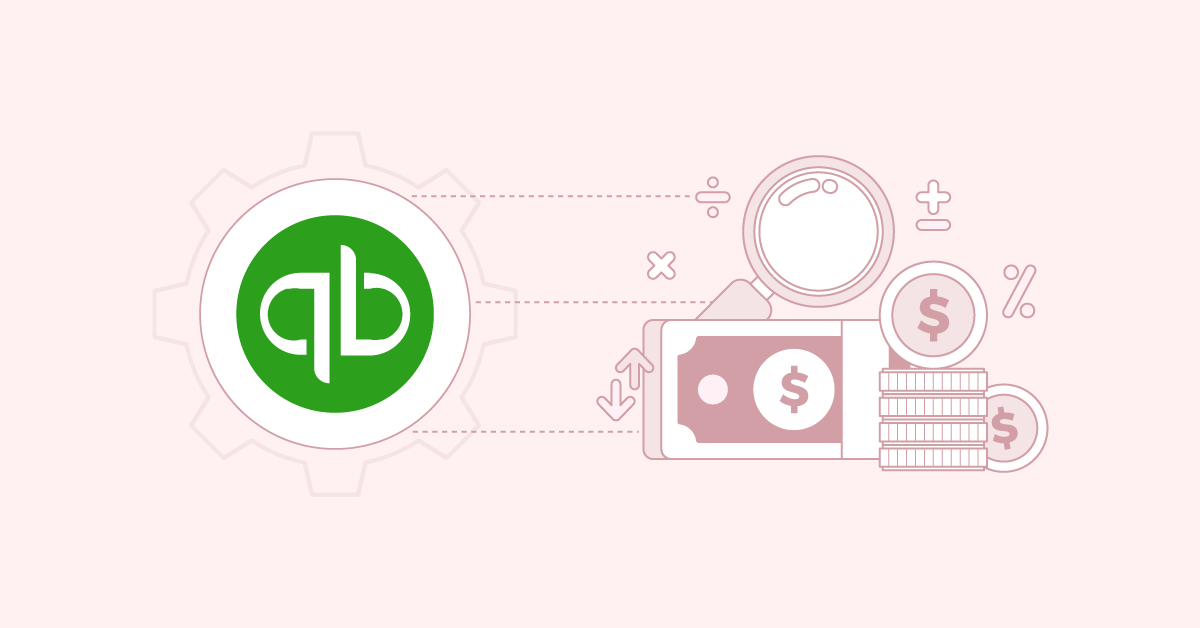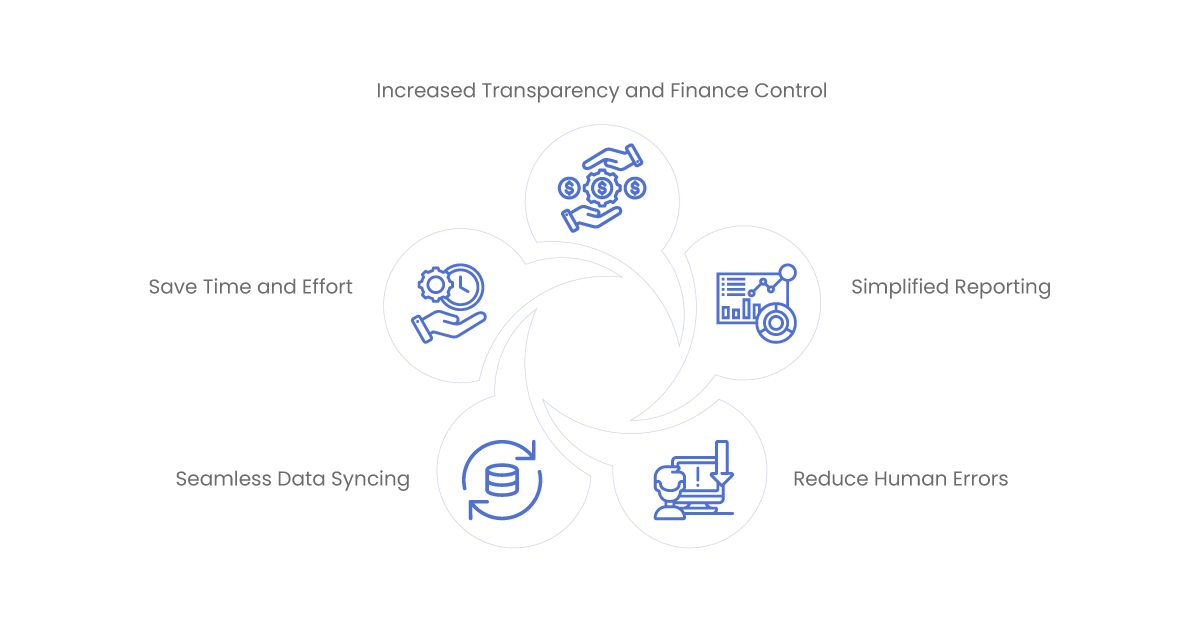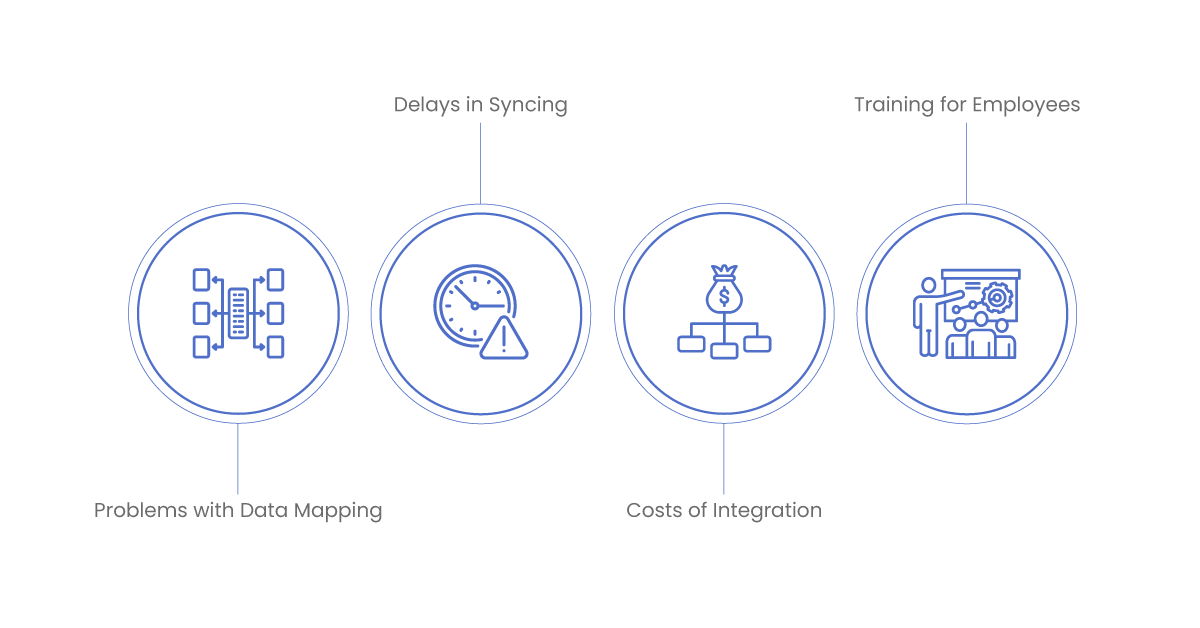Managing finances—whether for a small business, a startup, or personal accounts—can feel like juggling too many balls at once.
Handling transactions, invoices, and payroll across multiple systems can be overwhelming and frustrating. If you’ve faced this, you know how chaotic it gets trying to keep everything in order while focusing on growth or making your budget work.
But what if you could connect all your financial management tools into one smooth, cohesive system? No more switching between platforms, no more repetitive data entry, and no more costly mistakes. That’s the magic of QuickBooks integration.
In this blog, we’ll explore how automating QuickBooks with your other systems can save you time, minimize errors, and give you complete control over your finances. From tracking expenses to generating reports, QuickBooks integration also ensures everything is tax-compliant and streamlined for efficiency.
If you’re ready to simplify your financial processes and unlock real-time insights for your business, you’ve come to the right place. Let’s dive in!
Aonflow iPaaS – Free for First 3 Months!
Build and run up to 1,500 transactions monthly with no cost. No payment info needed!
What is QuickBooks Integration?
QuickBooks — One of the best accounting software tools used by businesses worldwide.
Whether you’re running a small, medium, or large business, QuickBooks can help you stay organized as you can track expenses, payroll, and invoices and generate reports.
But as your business grows, you might realize that a QuickBooks service doesn’t cover all your bases.
Finally, most businesses operate on multiple functions, and there are systems for most of these functions. These might include:
Tools for Managing Customer Data (CRM)
- Systems of record for products and assets to be monitored,
- E-commerce software for online transactions,
- The human resource department payroll software deals with employee salaries and taxes.
When these systems don’t integrate, the result is often dispersed and siloed information, manual updates, and more work. This is precisely when integration with QuickBooks takes the stage.
This means connecting your other systems to QuickBooks so that your finances sync between systems automatically. This means no more manual data entry, real-time updates, and accurate and all machines in hand data.
Why QuickBooks Integration is Essential for Your Business
Let us look at why you need to integrate QuickBooks with other systems — Efficiency. If something does not get built-in, you are left to deal with those tools separately, leading to duplicated data, human errors, and much extra wasted time.
QuickBooks integration avoids all such hurdles due to a seamless process of effective data exchange via your accounting app and other business tech.
Here’s how and why to integrate with QuickBooks:
Save Time and Effort
The most crucial advantage of QuickBooks integration is that it saves you time. You only need to input the same information once on multiple platforms!
For instance, your eCommerce store sales can be directly synced into QuickBooks without manual data entry. That minimizes the redundancy and enables you to grow your business further.
Seamless Data Syncing
Integration ensures real-time, up-to-date financial data across all platforms.
Whether tracking your profitability, monitoring expenses, or managing your cash flow, it is imperative to be equipped with real-time data for quickly informed decisions.
With QuickBooks integration, you’ll never have to worry about outdated information because all your systems sync seamlessly.
Reduce Human Errors
Manually entering data can be error-prone. A lousy typo or a confused digit can ruin all your accounting work. It can damage your finances and cause errors that can, in turn, cost you more. With integration, it requires minimum manual involvement and can help reduce human errors.
Increased Transparency and Finance Control
You can have the whole view of all your finances seamlessly integrated into Quickbooks, and it is much easier to focus more on your business’s financial health.
Connecting your systems will allow you to instantly track your expenses, income, and taxes. It clears up the fog and enables you to make better decisions with greater control over your finances.
Simplified Reporting
In the accounting process, preparing financial reports is time-consuming. Bringing together data from different sources can be laborious and error-prone without integrated systems.
On the other hand, with QuickBooks integration, reports can be generated automatically, and one can receive real-time financial data in just a few clicks.
How QuickBooks Integration Helps You Grow Your Business
Having dived into the significance of QuickBooks integration, now you will know how it specifically contributes to the growth of different industries.
Seamless operations — Integrating QuickBooks with other business systems as a seamless formula flows the operations, leading to new heights in the business growth stories by improving the efficiency and accuracy at level speed & accuracy at different parts of your business.
Data labeling is also helpful in getting better results from your CRM.
A successful business starts from customer satisfaction. Integrating QuickBooks with CRM (Customer Relationship Management) keeps the relationships with potential clients strong and personalized by providing the client with financial figures in real time.
For example:
- The retail sector is another need in which QuickBooks can partner with a CRM system to follow the purchasing practices of clients, outstanding receipts, and payment history. This will help businesses to customize their marketing and communication approach towards premium customers or customers with overdue balances.
- For service firms, this integration provides the ability to track client billing, track recurring billing, and automatically send reminders to clients for overdue invoices. This decreases the admin burden and enables better client communication and satisfaction.
By adding QuickBooks integration to their platforms, businesses in any industry can be sure they’re always on top of client relationships, which translates to better cash flow and growth opportunities.
Simplified Inventory Management
Inventory management is the most critical aspect of maintaining efficiency for all businesses that deal with physical products.
Whether you are an SME or a large enterprise, you must be looking for an easy solution to maintain your stock level, purchases, and sales data in one place.
Here is how it helps various industries:
- Integrating QuickBooks with an inventory management system, such as Shopify or WooCommerce for eCommerce companies, provides automatic inventory updates when each sale occurs. It avoids stockouts or overstocking, leading to smoother operations and a better customer experience.
- For the manufacturing sector, integration between QuickBooks and inventory software allows production and sales to move in sync, preventing stock-outs, delays in production, and overall inefficient management of raw materials and finished goods. It also avoids expensive production delays from unplanned inventory shortages.
Suppose inventory levels are kept accurate, and data is integrated electronically rather than tracked manually. This saves time and removes another block from business scaling, meaning you can confidently scale using QuickBooks integration.
Simplified Payroll Management
Payroll systems integrated with QuickBooks, in turn, make the entire process of paying employees and handling their compensation easier.
It helps in accurate tax calculation, deductions, and timely payments, minimizing errors and complying with tax laws.
This is beneficial for several industries:
- The hospitality industry has frequent staff schedules and hourly wages; Quickbooks can work alongside your payroll system to count up hours worked and integrate. This cuts down on administration and helps employees get paid on time.
- QuickBooks integration helps construction companies manage payroll for workers across multiple job sites, recording their hours, wages, and any deductions from taxes to benefits. It also keeps payroll data aligned with the financial statements, making tax season and compliance a snap.
Having QuickBooks integration also lets your business focus on scaling up without worrying about payroll errors by automating payroll and compliance tasks.
Sound Financial Planning and Budgeting
Financial planning and budgeting are essential to long-term growth — particularly as a business scales.
QuickBooks integration: With QuickBooks and other similar products, businesses can easily sync financial information from your project management tools and budgeting software — even your company’s entire annual budget — so that you know where every dollar is going.
This is especially advantageous in:
- The construction and project-based verticals are where companies need to focus on project budgets, costs, and profitability. Combining QuickBooks functionality with the advantageous project management system allows tracking real-time data on expenses related to an active project, thereby ensuring smooth functioning and increasing profit margins.
- For example, in organizations that are not for profit and use QuickBooks, reconciling data through an integrated platform can facilitate accurate tracking of donations through fundraising and donor management tools so budgets can align with actual contributions and expenditures, an essential aspect of transparency and fiscal strategy.
Multiple financial streams are easier to manage with integration, such as QuickBooks, to help businesses avoid overspending, hit goals, and efficiently allocate resources toward growth.
Integrating eCommerce Without Hiccups
For eCommerce businesses, integration with platforms such as Shopify, WooCommerce, or BigCommerce will change the game for QuickBooks.
Dean Transfer helps integrate QuickBooks data and automatically imports sales, customer, and payment information into QuickBooks, saving one’s valuable time and being accurate.
Industries can see the benefits right away:
- QuickBooks Integration saves a lot of manual bookkeeping by connecting QuickBooks to an eCommerce store — so online retailers can automatically log their sales and other transactional data. So it is easier to track profits, prepare taxes, and analyze sales.
- QuickBooks integration helps Subscription-based businesses manage recurring billing, payment/chargeback processing, and refunds easily. It simplifies tracking revenue streams and customer subscriptions, which are core to cash flow.
Integration with QuickBooks adds enterprise-class automation, allowing businesses the freedom to focus on marketing and sales and the assurance that their financials are tracked accurately.
How to Integrate Quickbooks with Your Other Systems
Integrating QuickBooks with your existing systems can be easier than you think. Here’s (step by step) how to begin:
Assess your integration needs
Here are the systems you want to integrate with QuickBooks—CRM systems, payment processors, payroll software, inventory management systems, etc. Identify your existing workflows and where integration would best add value.
Choose the right integration platform.
An example of a solution for integrating QuickBooks with other systems would be Aonflow. It is a next-gen iPaaS platform with integration solutions built-in.
Aonflow is the leading integration platform.
You can kick-start by integrating your first-ever workflow in just a matter of minutes.
Key Features of Aonflow
Low-Code/No-Code Platform: Aonflow uses low-code/no-code features so that users of any technical level can use a simple point-and-click interface to connect applications and automate workflows.
Prebuilt connectors: Aonflow offers many pre-built connectors like Quickbook for quick integration with applications and systems.
Cloud solution: Aonflow is available on the cloud, so companies can scale their operations and be flexible, eliminate upfront investment in infrastructure and equipment, and adjust their resources according to changing requirements.
Security First: At Aonflow, we prioritize data security and take the right measures to keep financial data secure during the integration and automation of processes.
Begin the integration process
Following the setup or QuickBooks setup steps after choosing your connection tool is the next step. Set up your own preferences, link your accounts, and map the fields of data you want to move from one site to another. To make sure everything was in sync and the connection worked right, test a number of different activities.
Monitor and make any necessary changes
After integrating your systems, you need to test them every so often. You can do this by giving SQA access to the system. Always keep an eye on the process of sending data so that all systems get updated at the right time. The support center can help you quickly fix any problems you may have. In order to meet new goals and add new systems as your business grows, you must change or set up connections.
Resolving some of the most common problems with integrating QuickBooks
The connection with QuickBooks works great, but you might need some help.
Problems with Data Mapping
When you sync data between systems, you often need to map fields. Depending on how your system names or sets up the file, you may need to change the data-mapping settings.
Delays in Syncing
Data changes may take longer to happen with some connections. If there are problems with sync, check how the link is set up and how the tool works.
Costs of Integration
The costs may change based on the platforms you want to connect. Just make sure that you also look at the return on investment (ROI) of your connection setup to make sure it’s worth it.
Training for Employees
Once the connection is up and running, teach your people how to use the system correctly. This will make it easier for people to use the ease and speed that this connection offers.
Conclusion
Integrating with QuickBooks is essential; it’s not just a way to free up time from the day-to-day details of your finances; it’s a game-changer that will help you be more productive, make fewer mistakes, and have better insight and control over your finances. After putting all of your financial information in one place, you can make choices based on more accurate information instead of more work.
You should connect QuickBooks to your other tools right now if you haven’t already. Integrating QuickBooks is a vital part of better managing your expenses, no matter what type of small business you’re running or how big your operations are getting.
Get ready to grow your business and meet all of your integration needs. Get in touch with Aonflow experts right now!
Aonflow iPaaS – Free for First 3 Months!
Build and run up to 1,500 transactions monthly with no cost. No payment info needed!


